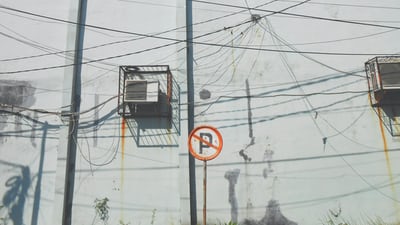What You Know About HVAC And What You Do Not Know About HVAC
Energy Technologies
Energy technologies are in continuous evolution. Appliances, including heating and air conditioning systems, are improving to answer the need for following the guidelines of energy regulations. To meet the demands of energy regulations, appliances including air conditioner units and furnaces are becoming more significant.
While energy technologies are forever changing, so is our way of life. Years ago, homes did not have cooling systems during the hot summer months. People attended movies quite often. The biggest reason was to rest and relax in the comfort of the air-conditioned theater.
Consumers can now subscribe to a movie venue and watch the latest and best movies right from the comfort of their air-conditioned home, providing the home’s system is operating in an energy-efficient manner.
There are things about HVAC systems that may be common knowledge, and then there are surprising things that you probably do not know.
You would be surprised at how many people do not know what HVAC stands for or what it means because many do not give too much thought to their heating, cooling, and ventilation system until it decides not to work. Although, most people know that whatever it stands for is right for your home and business.
- H, Heating
- V, Ventilating
- AC, Air Conditioning
The HVAC system in your home is what keeps your family safe, comfortable, and cozy.
Different Heating and Cooling Systems
- Hot water heat
- Electrical
- Natural gas
- Solar (expensive to install 50 percent less costly overall)
- Propane
- Radiant floor heat
- Geothermal systems (costly to install, drilled into the ground using heat from the earth to heat the home)
The most common type of heating and cooling system are those run by electricity and natural gas. Electric heating systems in states that experience bitterly cold winters are not ideal. Homeowners living in the southern states tend to have electrical heating and cooling systems.
Things You Did Not Know About Your HVAC
The HVAC system you have in your home keeps you relaxed, comfortable, cool or warm, and healthy. All of these positives make you more productive because you are healthier and feel better.
HVC systems have a filter that you must change every month and no more than every two months, or you could damage the system when the filter becomes so dirty that it clogs.
Do you ever close off your heating and cooling vents to save on energy? The chances are that you do. Closing off these vents puts more stress on the HVAC system. You may think that if you cut this air off by closing the vent from specific room redirects to another home area. This habit is not what happens. You are unknowingly causing gradual damage to your heating and cooling system. Closing off vents puts stress on your HVAC system. If you do this frequently, it will cause damage to your heating and cooling system.
It is essential to know what your state has to say about the specific licenses required for those who work on HVAC systems. These professionals should be highly educated and trained in these systems. Never work on these systems if you have not been trained, and never let anyone else work on your system because they are well-versed.
It is critical that you have your system checked over at least twice a year. Call your HVAC technician before winter comes when you need to start using your heat or before the hot summer months when you expect to use your air conditioning. These routine checkups help you to avoid costly repairs and further damage. In the long-run, these checkups save you money.
If your heating or cooling system presents problems, the chances are that it is an electrical issue. Never try to repair an electrical issue and leave this to the professionals, such as ac repair Phoenix, trained to work with electricity. Some electrical problems could be,
- Blown fuses
- Damaged breakers
- Damaged capacitors
There will be signs if your HVAC system is reaching its end, such as in the following,
The thermostat temperature does not match the room temperature. The air return from the vent is not correct. There are inconsistent temperatures. You notice odd noises from the system.
Regular maintenance of any HVAC system includes the following necessary things. Ideally, this maintenance is twice a year but for sure annually.
- Filter replacement
- Cleaning of coils in heat pumps, chillers, and air conditioners
- Inspection of ducts and piping
- Inspection of ducts and motors
- Offering education on proper temperature settings
- Installing a programmable thermostat
- Installing integrated control systems
- Synchronizing in and out temperatures
- Monitoring of heat and cool air

